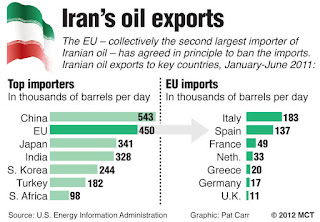The institution of Comptroller and Auditor General of India (CAG),(भारत के नियंत्रक-महालेखापरीक्षक), is one of the earliest institutions in the evolution of democratic processes in India, which ensures accountability in the Indian polity.
The CAG, also known as the Supreme Audit Institution (SAI), has completed 150 glorious years on 16 November 2010.
The institution of Comptroller and Auditor General of India was set up to bring about transparency, accountability and probity in public life.
The Institution came into existence in 1860. The importance of such an institution was realised by the then British Government immediately after they assumed power from the East India Company in 1858.
The Government of India Acts of 1919 & 1935 enhanced its position and in 1950 the position of the Auditor General of India was enshrined in the Constitution and re-designated as the Comptroller & Auditor General of India.
The Comptroller and Auditor General (CAG) of India is an authority, established by the Constitution of India under Chapter V, who audits all receipts and expenditure of the Government of India and the state governments, including those of bodies and authorities substantially financed by the government. The CAG is also the external auditor of government-owned companies. The reports of the CAG are taken into consideration by the Public Accounts Committees, which are special committees in the Parliament of India and the state legislatures . The CAG of India is also the head of the Indian Audit and Accounts Department, which has over 58,000 employees across the country.
The current CAG of India is Vinod Rai, who was appointed on 7 January 2008. He is the 11th CAG of India.
The Comptroller and Auditor-General of India is appointed by the President of India following a recommendation by the Prime Minister.
The Comptroller and Auditor General of India (CAG) and the Indian Audit and Accounts Department (IAAD) together constitute the Supreme Audit Institution of India (SAI). Senior functionaries of the SAI representing the CAG in the states are called Accountants General.
The Constitution of India has mandated the institution as the auditor to the nation. Articles 148 to 151 of the Constitution prescribe a unique role for the Comptroller and Auditor General of India in assisting the Parliament to enforce the said accountability of the Government departments.
The CAG audits all receipts and expenditure of both Central and State Governments, including those of bodies and authorities substantially financed by the government. The CAG is also the external auditor of government-owned companies.
The reports of the CAG are taken into consideration by the Public Accounts Committees of the Parliament and the State Legislatures. The CAG of India is also the head of the Indian Audits and Accounts Service, represented by the offices of the Principal Accountants General/Directors General, Accountants General/Principal Directors across the country.
The duties of the CAG as defined by the Duties, Powers and Conditions of Service (DPC) Act, 1971- are to audit and report upon:
- All receipts into and spending from the coffers (called the Consolidated Fund) of the Union and State Governments
- All transactions relating to the Emergency expenses (called Contingency Funds) and relating to the money of the public held by the Government e.g. Postal savings, Vikas Patras (called Public Accounts) at Central as well as State levels
- All trading, manufacturing, profit and loss accounts, balance sheets and other subsidiary accounts kept in any Government department
- All stores and stock accounts of all Government offices and departments
- Accounts of all Government companies and Corporations e.g. ONGC, SAIL etc
- Accounts of all autonomous bodies and authorities receiving Government money e.g. municipal bodies, IIMs, IITs, State Health societies
- Accounts of any body or authority on request of the President/Governor or on his own initiative
- Power to inspect any office or organisation subject to his audit
- Power to examine all transactions and question the executive
- Power to call for any records, papers, documents from any audited Entity
- Power to decide the extent and manner of audit
So, we can see that while CAG can report to Parliament and State Legislatures, it cannot prosecute. The Union Government, which constitutes of the Party in majority in Parliament, and State Government, which Constitutes of the Party in majority in State Legislature, is unlikely to take action against itself even if indicted in the report of CAG. Therefore, that the proposed Institution of Lokpal does not become a toothless tiger, it is necessary that they are given effective powers to prosecute and punish the guilty.










